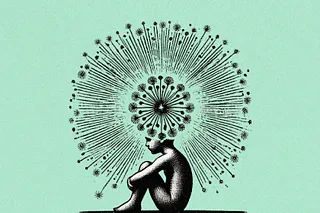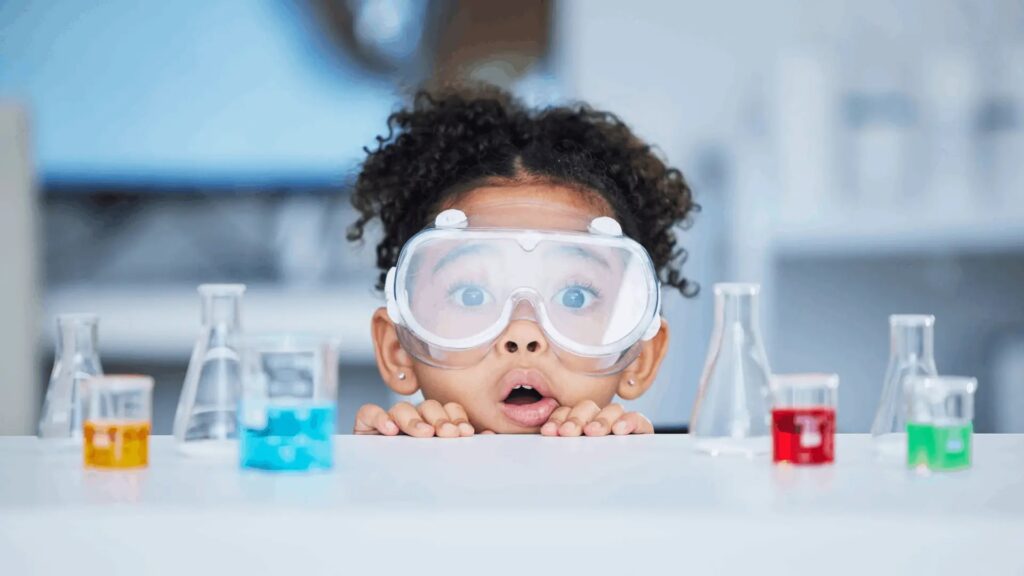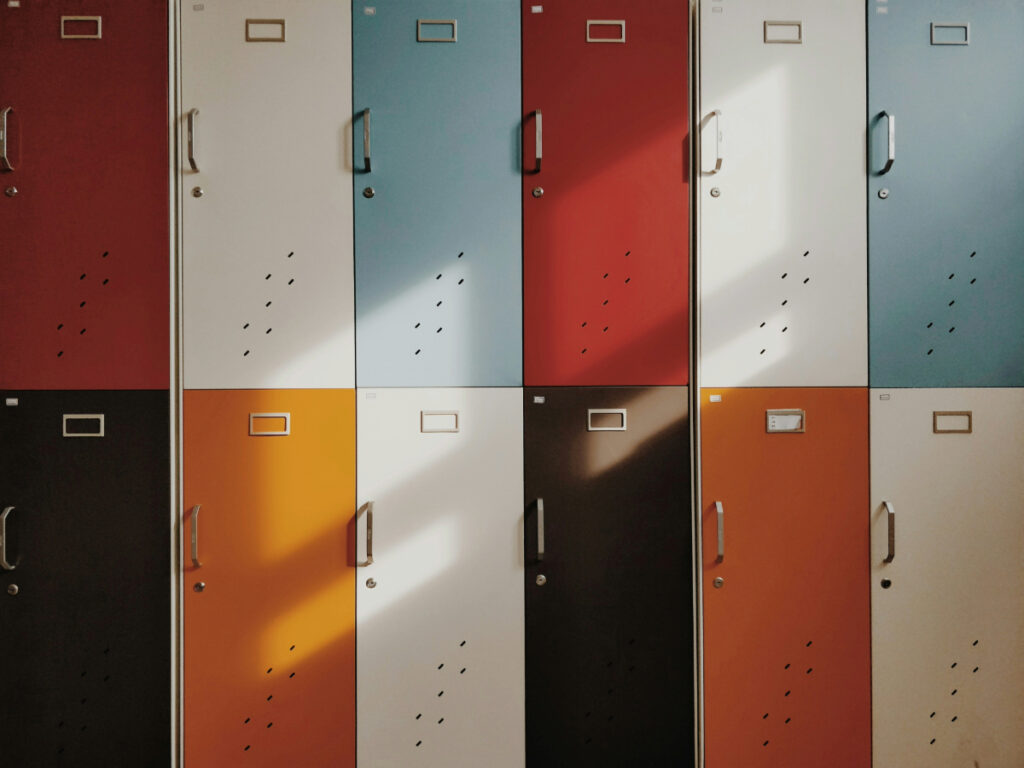How AI will transform education, from PreK to PhD

There has never been a better time to be five years old. I often get asked this question: “If AI knows everything, why should my kids learn anything at all? Isn’t education obsolete?” My answer is visceral and immediate: No, education will never be obsolete. It’s actually more important than ever. But it does need to adapt. Massively. A few times per century, some new technological invention drops from the sky and uproots life as we know it. Whether we like it or not, we’re thrust into a “new normal,” one that significantly disrupts the pattern of our daily lives. People once thought the Industrial Revolution was the end of the world. And in some ways, it felt like it. People were scared, uncertain, powerless. Thousands of jobs were lost. But in the long-term, hundreds of thousands of jobs were created. Now, for you and me, everyday tasks are glossed with an ease and convenience that previous generations could have never dreamed of. All we had to do was adapt. We did it again with the Internet. And again, with the iPhone. And we will do it again with AI. Because beneath newfangled gadgets and innovations and movements, the human spirit throbs like a persistent pulse. We fear, endure, adapt, innovate, create, then marvel at what we’ve done and how far we’ve come. Eventually, we look back and say, “How did we ever manage without this thing?” And the cycle repeats itself. The first 20 years of a person’s life no longer look anything like the experience of earlier generations. That may sound scary, but I promise you: there has never been a better time to be five years old. The five phases of education (as we know it) Let’s start with a quick look at how education works without AI. Learning happens in five phases: Pre-K to 3rd GradeKids set the foundation of their education. They learn the basics: letters, numbers, how to read and write. There’s a popular adage: “Until 3rd grade, kids learn to read. After 3rd grade, they read to learn.” 4th Grade to 12th GradeThese years are all about mastering a standardized curriculum. In the U.S., that’s Common Core and AP courses. The goal is to stuff kids’ heads with as much knowledge as possible. CollegeStudents begin to learn from seasoned experts. College classes are less about standardized test scores and more about domain expertise. For the first time, students can break away from generalized curriculum and dive deep into niche pockets of education: gothic literature, applied mathematics, biochemistry, the history of ancient Mayan civilization — you name it. Master’s ProgramsNow, students shift to becoming experts themselves. “School subjects” become “career goals.” Students are no longer concerned with pure consumption of knowledge, but the long-term execution and creation of it. PhD ProgramsFinally, the PhD shifts from mastering knowledge to creating it. Students officially break their “student” mold and step into the role of “inventor,” “creator,” and “industry expert.” As you know, this is an arduous, expensive formula that can span the length of decades. Certain things must happen to elicit certain outcomes. Creation requires mastery. You can’t expand a frontier if you don’t know the existing frontier like the back of your hand. The human knowledge graph is an intricate web of successes and failures, from caffeine-fueled all-nighters to heated debates with professors to actually being in the field, boots on the ground, testing, trying, experimenting, hypothesizing. Knowledge is the result of generations standing on the shoulders of giants. Example of a knowledge graph in the realm of philosophy And now, a new giant (albeit, artificial) has entered the scene. And it will significantly change learning as we know it. Sacrificing learning in the name of AI isn’t just defeatist, it’s destructive You and I both know that education isn’t just about learning or thinking; it’s about learning how to learn, thinking about how to think. Throwing up our hands and saying, “Well, there’s no point in learning if AI can do it all!” is a destructive mindset. It’s the path to unlocking “scary AI” — the kind of existential threat that takes over the world because we have allowed technology to use us and not the other way around. What most of us are not seeing is this: AI can help our kids accomplish things no generation before them has ever been able to do. It will fill their minds with more knowledge than ever before, faster than ever before. It will enable their minds to be the most interesting places in the world. Can you imagine? If your kids’ own ideas were more exciting than the brain rot of TikTok or the addictive slop of video games? A few years ago, AI couldn’t beat a third grader in a math test. Now it can beat most Master’s students. AIs today are on track to become experts in every single academic field. What AI cannot do is create new knowledge at the capability level of humans, especially in fields where it doesn’t have gigabytes of training data. And this is where humans can thrive. Four ways AI will transform education Our idea of education is this: twenty-five students, one teacher, everyone learning the same thing at the same pace at the same time. Some kids are bored and drooling, others are frustrated and struggling, and teachers are oversaturated with responsibility. Bell rings. Class dismissed. These days will soon be over. Here are the four integral ways AI will transform education. Read the full article here
Why traditional school is broken (and how we’re fixing it)

Our education manifesto. The greatest untapped resource on the planet isn’t nuclear energy or deep-sea minerals, genetic engineering or outer space exploration; it’s human potential. And what human has more potential than a child? You’d think we’d pour our best effort into educating them, exhausting all possible options. But we don’t. Most parents know more about the difference between the oat milk from Trader Joe’s and the oat milk from Whole Foods than they know about their own kids’ education. (Not an insult, just a fact.) And it’s why I’m writing to you today. To be clear, I don’t enjoy harping on the fact that conventional education is broken. There are too many rage-baiters and doomsdayers out there: “public school sucks!” or “save your kid from public school while you still can!” I am not one of them. That’s coming at the problem from the wrong angle. Parents shouldn’t have to ask, “What’s wrong with my kids’ school?” They should be asking, excitedly, “How good can my kids’ school really get? How high is high?” But to answer that, we have to first understand where we are. And to be honest, it’s not pretty. My goal is to give you the unvarnished truth of our education system as a whole, so you can start building your own opinion and making the best possible decision for your family. Let’s start from the beginning. 400 BCE: The golden age of personalized education For over 1,000 years, education was a deeply personalized experience. It was the golden age of tutors: Socrates tutored Plato, who tutored Aristotle, who tutored Alexander the Great. You get the picture. The problem was, only the wealthy could afford high-quality tutors. Personalized learning may have been the pinnacle of education, but it was far from accessible. Naturally, alternative solutions were born. Read the full article here
The six-hour school day is dead. Luckily, there’s an even better solution.

Welcome to two-hour learning, where kids learn twice as much, twice as fast. It’s true — kids can crush academics in just two hours a day. And by “crush,” I mean, climb their way to the top 1% of the nation. This isn’t hyperbole. It’s happening right now in the halls of our flagship school, Alpha. And your kids could be next. To ease the swell of panic that probably just rose in your throat — “you mean the newest, most successful form of education includes kids coming home after just two hours of school!?” — you should know that the “two hour” model only applies to hard and fast academics. (Yes. Take a breath. All is well.) It works like this: Mornings are for academics. Kids spend two hours immersed in deep, focused learning with traditional academia: math, reading, science, history. Afternoons are for life skills. Kids spend four hours participating in workshops that simulate real-world skills: public-speaking, entrepreneurship, creative writing, financial literacy. Kids aren’t built to sit butt-in-chair for six hours a day. Intuitively, we know this. They need movement and conversation, things to build and challenges to overcome. It’s frustrating enough for adults to be tethered to their desk all day. Why subject kids to the same fate? Why not fill their afternoons with activities that inspire them, that show them how the world actually works? Say, launching a food truck business, or writing a Broadway musical, rather than nodding off during post-lunch afternoon algebra. Kids are far more capable than we give them credit for, and the six hour school day keeps them shackled in these chains of unbelief. The two-hour learning model, however, gives kids precisely what they need — legitimate academia and real-world experience — precisely how they need it — action over absorption. Read the full article here
Alpha School uses AI to teach students academics for just two hours a day

AUSTIN, Texas – One Austin woman believes traditional schooling is outdated and filled with busy work. That’s why she created a new learning method where there are no teachers, and students learn academics through an AI tutor on a series of apps, for just two hours a day. “Our students are learning twice as fast as students in a traditional classroom, but they are doing it in only 2 hours a day,” said MacKenzie Price, co-founder of the Alpha School in downtown Austin. Read the full article here
Alpha School Miami: The Future of Education in Our Community

An innovative new school opens in Miami set out to redefine education for families looking beyond the traditional school model. It’s a school where 8-year-olds launch startups, 10-year-olds give TED-style talks and 12-year-olds tackle Harvard Business School challenges. Alpha School boasts a 10-year track record of excellence in Texas, where classes consistently rank in the top 2% in core curriculum, kids get prepared for life, and one of the key measures of success is that “students love school.” Alpha School is opening its doors near Tropical Park at 8000 SW 56th St., bringing its proven model to our vibrant city. Imagine a school where there are no lecture-based classrooms. They’re replaced with personalized learning plans and project-based workshops focused on life skills. The entire school experience is shaped around individual student needs, aptitudes and passions. The innovative approach is attracting national attention and was the focus of recent special reports on The Today Show and NBC News, singling it out as a model for ‘The Future of Education.’ Read the full article here
Unlocking Potential in Kids: Empowering The Path to a Brighter Tomorrow

In a world where kids are told that they ‘won’t be able to’, we believe in telling them they ‘absolutely can’. At 17, Joan of Arc led an army to victory. Malala Yousafzai became a Nobel laureate, championing girls’ education worldwide. Greta Thunberg sparked a global climate movement before turning 18. They were relentless in pursuing their potential and passions. Today, by actively nurturing young minds and instilling a belief in their abilities, we unlock a future where every child can achieve greatness. Here are ten key benefits of empowering young minds through such transformative practices. Boosted Confidence Empowering children instills a sense of self-belief and confidence. When young minds are encouraged to pursue their interests and are supported in their endeavors, they develop a strong sense of self-worth and the courage to take on challenges. Enhanced Critical Thinking Encouraging critical thinking from an early age helps children develop the ability to analyze, evaluate, and create new ideas. This skill is crucial for problem-solving and innovation, equipping them to tackle complex issues in the future. Improved Problem-Solving Skills When children are empowered, they learn to approach problems with a solution-oriented mindset. They are encouraged to think creatively and independently, which enhances their problem-solving abilities and prepares them for real-world challenges. Increased Engagement Empowering young minds through personalized and relevant learning experiences keeps them engaged and motivated. When children see the value in what they are learning and how it applies to their interests, they are more likely to be enthusiastic and involved. Encouraged Creativity A supportive environment that values creativity allows children to explore their imagination and express themselves. This not only enhances their learning experience but also fosters innovation and adaptability, skills that are highly valued in today’s world. Stronger Leadership Skills Empowered children often take on leadership roles in various settings, learning to guide, inspire, and motivate others. By engaging in collaborative projects and activities, they develop essential leadership qualities that will serve them throughout their lives. Greater Collaboration Encouraging collaboration from an early age helps children develop strong interpersonal skills. Working together on projects and activities teaches them the value of teamwork, effective communication, and appreciating diverse perspectives. Development of Life Skills Beyond academics, empowering young minds means equipping them with essential life skills such as communication, empathy, and resilience. These skills are crucial for personal growth and success in all areas of life. Fostered Independence Encouraging self-directed learning and decision-making fosters independence in children. This independence is crucial for lifelong learning and empowers students to take ownership of their education and future. Increased Motivation Empowerment often leads to increased motivation. When children feel that their interests and efforts are valued, they are more likely to be motivated to set and achieve goals, driving their personal and academic growth. Capable Citizens of the World Empowering young minds extends beyond personal growth; it has significant societal benefits. By developing critical thinkers, problem solvers, and empathetic leaders, we prepare students to contribute positively to their communities and the world. These empowered individuals are better equipped to address global challenges, drive innovation, and foster social progress. As they grow, they bring these skills and attitudes into the broader society, promoting a culture of collaboration, understanding, and continuous improvement. Conclusion In conclusion, empowering young minds through personalized learning and skill development is essential for their personal growth and the betterment of society. By fostering critical thinking, creativity, and independence, we prepare students not only for academic success but also for meaningful contributions to the world. Investing in the education and empowerment of young minds is an investment in a brighter, more innovative, and inclusive future.
How AI And Humans Will Transform The Current Education System

Few things are more important than education. Unfortunately, the U.S. education system has been under siege for years, with understaffed schools, overcrowded classrooms and overworked, underpaid teachers. The government’s own NAEP issued a Nation’s Report Card revealing less than a third of U.S. eighth graders can do grade-level math. I believe we can no longer accept a system that’s failing so many of our students. The greatest problem stems from the fact we’re still applying a rigid, century-old education model to the challenges of our modern world. Today’s teachers hold the impossible job of educating 20, 30 or even 40 students in a classroom, kids from vastly different backgrounds and aptitudes—with no time to focus on personalized learning. Read the full article here
5 Forces Educational Innovators Should Know About

As you read this, new kinds of schools are being designed, launched and expanded. Many are utilizing the power of Artificial Intelligence. Take for example, Synthesis School and their AI-powered math tutor or Alpha School in Miami that uses AI to teach their children. Some of these schools have already evolved into competition for mainstream schooling. In the coming years, they may even render some traditional methods of education obsolete. Read the full article here
GT School now open, enrolling students in Georgetown

GT School held a ribbon-cutting ceremony Sept. 25 following its opening Aug. 26. What parents should know The private school specializes in hands-on, project-based workshops, and is now teaching kindergarten through eighth grade students who meet its qualifications. Students are in various stages of enrollment, and five to six students will start before the end of the year while 30-40 students have qualified to become a student, said Anna Davlantes, a spokesperson for GT School, in an email. Read the full article here
Don’t dismantle the Department of Education just yet

Donald Trump appears poised to make good on his campaign pledge to dismantle the Department of Education. The president-elect’s frustration with the wayward direction of federal education is understandable — and shared by millions of Americans. But shuttering the Department of Education won’t change that direction. So let’s make a promise to America’s kids first. The new administration ought to create a “Kids First” education plan that empowers students, parents, and teachers — rather than administrators and bureaucrats — and prioritizes real-world academic achievement over the failed pedagogies of the past. When Jimmy Carter established the Education Department in 1979, U.S. schoolchildren were ranked first in the world for academic proficiency. Since then, we’ve fallen to 24th place. Read the full article here